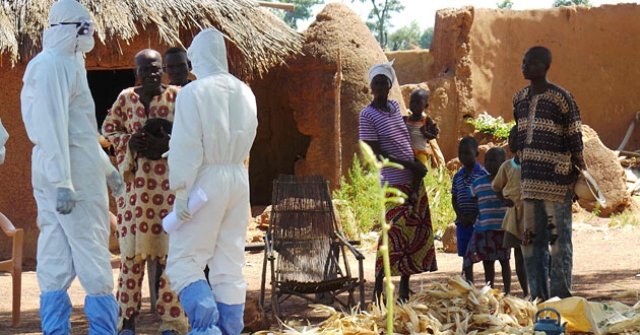Benin: WHO’s medical detectives work with national health authorities to solve a mystery
 On a hot afternoon in November 2014, Benin’s Minister of Health, Dr Dorothée Kinde Gazard and WHO Country Representative Dr Youssouf Gamatié visited the Hôpital de Saint Jean de Dieu in Tanguiéta, in the country’s northwest. They were in a sombre frame of mind.
On a hot afternoon in November 2014, Benin’s Minister of Health, Dr Dorothée Kinde Gazard and WHO Country Representative Dr Youssouf Gamatié visited the Hôpital de Saint Jean de Dieu in Tanguiéta, in the country’s northwest. They were in a sombre frame of mind.
Four employees of the hospital had died from a severe febrile illness, some with signs of a viral haemorrhagic fever, over a period of 2 weeks – an event that for public health experts sounds the alarm for an outbreak of a dangerous infectious disease.
Given the current Ebola virus disease outbreak in West Africa, one thing immediately came to mind – Benin could become the fourth.
Blood samples from the people who died at the hospital had been sent to a specialized laboratory in Lagos, Nigeria. The Minister and Dr Gamatié were greatly relieved when the lab reported that the samples were negative for Ebola virus. However, an unanswered question remained: what disease had killed a 2-week-old baby, a hospital interpreter specialized in local languages and health workers including a highly respected paediatrician?
WHO team arrives
A group of infectious disease experts led by WHO and including staff from the US Centres for Disease Control and Prevention, Canada Public Health Institute, Centre PASTEUR of Lyon in France, and other partner organizations had coincidentally just arrived in Benin. The team had been deployed as part of WHO’s Ebola virus disease Preparedness Strengthening initiative to help 14 priority countries in the African Region prepare for a possible Ebola outbreak.
“The signs and symptoms of the illness that hit people in Tanguiéta suggested a haemorrhagic fever,” says Dr Catherine Smallwood, a technical officer working in WHO’s Ebola preparedness team. “Benin had never identified a case of Lassa fever – but this was the disease that came most prominently to mind once Ebola was ruled out because Lassa fever cases had been reported from neighbouring Nigeria during 2014.”


